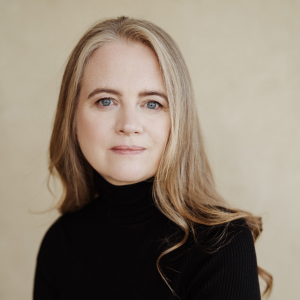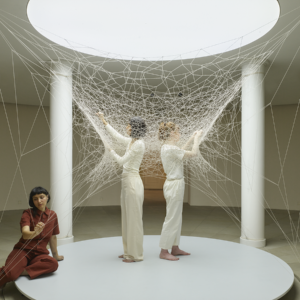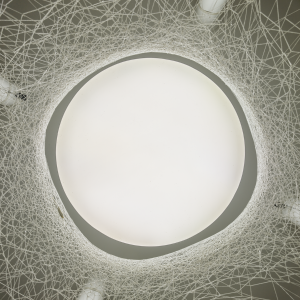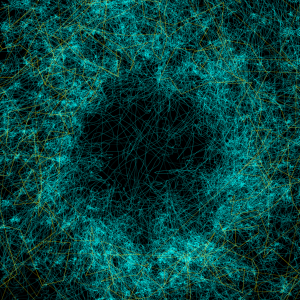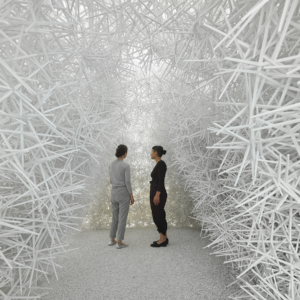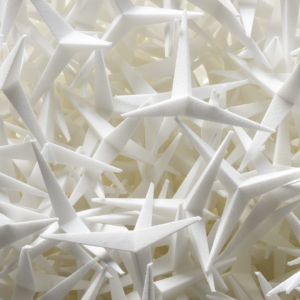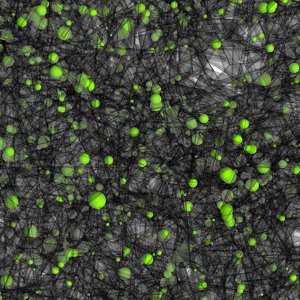| Time: | November 13, 2023, 4:30 p.m. – 6:00 p.m. |
|---|---|
| Download as iCal: |
|
We are very honoured to welcome Karola Dierichs, Professor of Material and Code at the Matters of Activity (MoA) Cluster of Excellence, to our upcoming Constructive Conversations event on Monday, 13 November 2023 from 4:30-6:00 p.m.
Karola Dierichs will give a lecture on Cultures of Creation: “The Intelligence of Art” in Computational Design.
Syntopia 1 – Soma I Body © Roland Halbe
The event will take place digitally and in person.
|
Title: |
Cultures of Creation: “The Intelligence of Art” in Computational Design |
|
Speaker: |
Prof. Dr.-Ing. Karola Dierichs |
|
Date: |
13 November 2023 | 4:30-6:00 p.m. |
|
Location: |
Room 01.008 (M11.11) | K1, Keplerstr. 11, University of Stuttgart |
|
Webex-Link: |
This lecture is part of the AdvanceAEC partner seminar series. Please register or log in to access the event credentials. |
Lecture Abstract
This lecture is a first attempt at arguing for an “intelligence of art” in computational design. It will do so by introducing the notion of design as the creation of novelty and will ask the question how this novelty is produced: is it a result of computational data processing or are there other forces at play?
The term “intelligence of art“ has been introduced by art historian Thomas Crow in 1999 and denotes the immeasurably multi-faceted forms of human consciousness expressed in acts of creation. It shows a critical and very timely counterpoint to Herbert A. Simon's seminal work on artificial intelligence – The Sciences of the Artificial – published around the same time in 1996 as a third revised and expanded edition of the original version of 1969.
Following this argument, artistic-intuitive methods of exploration as well as visionary scenarios and images are introduced as primordial in the design process. Closely linked to this, is the cultural embedding of these visionary images in a historical-theoretical context. Ultimately, we will discuss whether projects conducted in computational design under the paradigm of pure rationale also follow a deeper and inherently culturally embedded agenda.
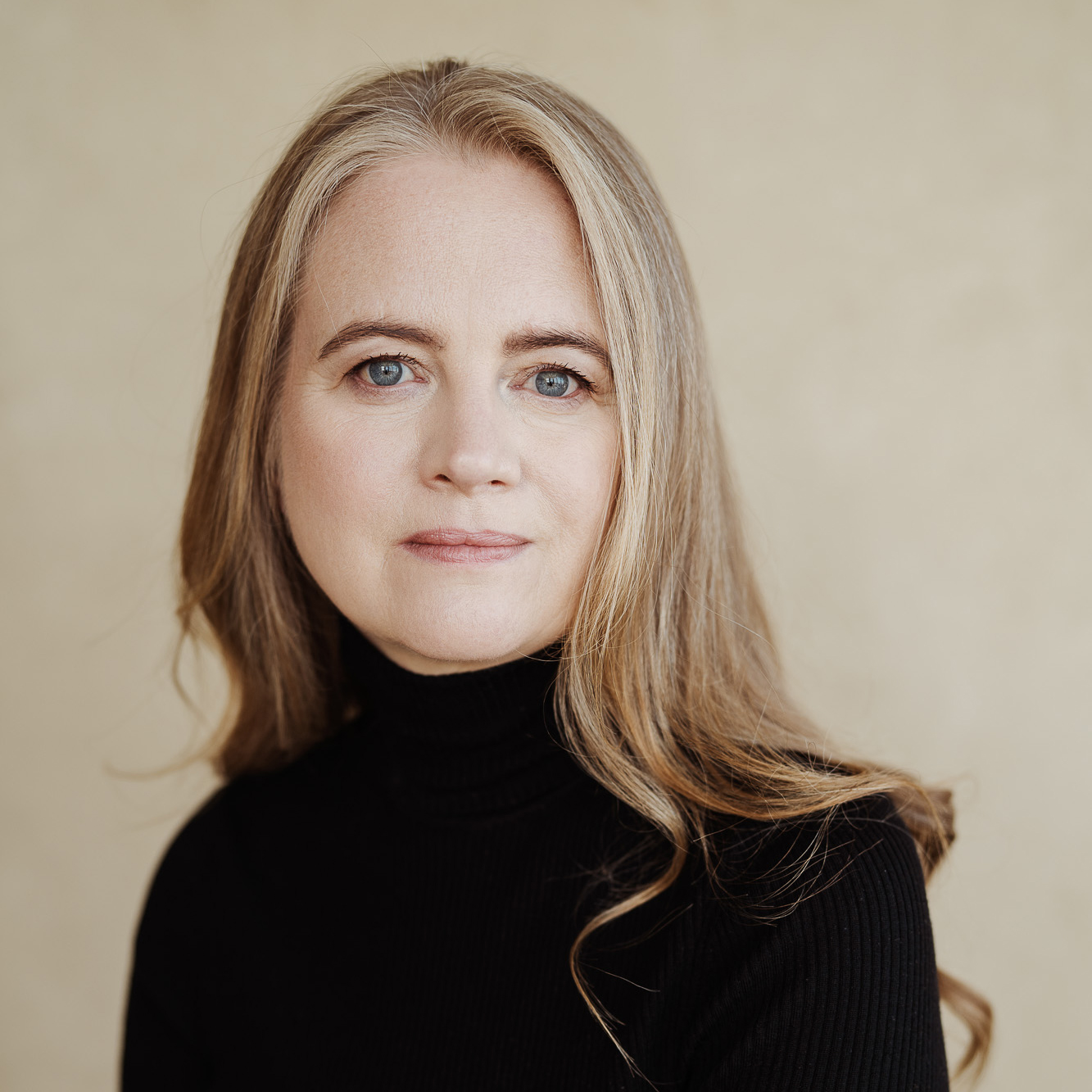
Karola Dierichs © Sophie Brand
Karola Dierichs
Karola Dierichs is an architect. She is currently employed as a Professor of Material and Code at the Weißensee School of Art and Design Berlin within the Matters of Activity (MoA) Cluster of Excellence at the Humboldt University of Berlin, where she is also a Principal Investigator (PI). In addition, she is a researcher at the Max Planck Institute of Colloids and Interfaces in Potsdam.
In 2019 she received her doctorate with distinction from the University of Stuttgart. Previously she has studied at the Architectural Association (AA) in London, the Swiss Federal Institute of Technology (ETH) Zurich and the Technical University of Braunschweig. Teaching engagements included the AA in London, the Städelschule Architecture Class (SAC) in Frankfurt and the Institute for Computational Design and Construction (ICD) in Stuttgart.
At the MoA, Karola Dierichs is an active member of the Material Form Function and Weaving groups. Here she contributed to the two key exhibitions of the first phase of the Cluster and co-founded the Syntopic Architectures sub-group. At the ICD she has conducted research on Granular Architectures, where she has developed designed granular materials in architecture.
She has been engaged in transdisciplinary research collaborating nationally and internationally, among others with the Institute for Multiscale Simulation (MSS), Friedrich-Alexander-Universität Erlangen-Nürnberg, Germany, and the Behringer Lab, Duke University, USA. She has published numerous articles in her field and lectured in Europe and the USA. Her research on designed granular materials has been recognised with the “Holcim Acknowledgement Award Europe 2014” and the “materialPREIS Acknowledgement Study and Vision 2019”. Selected works have been included in the traveling exhibition “Hello, Robot” at the Vitra Design Museum, Germany, starting 2017, and the opening exhibition “Minding the Digital” of the Design Society in Shenzhen, China.
Key Research Fields: Material aisthesis, materials design, new media and technologies in architectural design, ecological design
AdvanceAEC – Join this and further AdvanceAEC Partner Seminars and receive an AdvanceAEC certificate!
This lecture is part of the AdvanceAEC Partner Seminar series. There will be eight Partner Seminars in 2023. Partner Seminars focus on cross-sectional and interdisciplinary topics and are open to all network partners. If you attend at least six of the eight seminars, you will receive a certificate of time attendance. You will need to register for this at the beginning of each event. The procedure for this will be briefly explained before each seminar.
The access data for this event is available to AdvanceAEC members. All researchers working in the field of AdvanceAEC are welcome to join the network. Please register or log in to access the event credentials.



